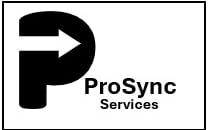The Crucial Role of Project Managers in Product Management: Unleashing Value and Driving Success
In today's dynamic business landscape, where innovation is key and products evolve rapidly, organisations must recognise the indispensable role of project managers in product management functions. As the bridge between vision and execution, project managers bring a wealth of value to the table, offering distinct benefits that contribute to the overall success of an organisation.
Matt Jackson
2/1/20242 min read


Unleashing Value through Expert Coordination:
1. Strategic Alignment:
Project managers play a pivotal role in ensuring that product initiatives align with the broader organisational strategy. They excel in breaking down strategic goals into manageable tasks, providing a roadmap for the product team to follow.
2. Efficient Resource Management:
Effective allocation and optimisation of resources are critical for successful product management. Project managers excel in resource planning, ensuring that teams have the necessary tools, skills, and support to deliver high-quality products on time and within budget.
3. Risk Mitigation:
Navigating uncertainties is inherent in any project. Project managers are adept at identifying and mitigating risks, allowing organisations to proactively address challenges and maintain project momentum.


Distinct Benefits of Having a Project Manager in Product Management:
1. Cross-Functional Collaboration:
Project managers act as catalysts for collaboration among various teams involved in product development, including marketing, design, development, and quality assurance. Their ability to foster communication and cooperation ensures a holistic approach to product management.
2. Adaptive Leadership:
In the ever-evolving landscape of product development, project managers bring adaptive leadership skills. They guide teams through change, encouraging flexibility and responsiveness to emerging trends and market demands.
3. Streamlined Processes:
Project managers are experts in process optimisation. They streamline workflows, eliminate bottlenecks, and enhance overall efficiency, enabling organisations to deliver products faster without compromising quality.


Key Differences: Project Manager vs. Product Manager vs. Product Owner
1. Project Manager:
Focuses on planning, execution, and successful delivery of projects. Manages resources, timelines, and risks to achieve project objectives.
2. Product Manager:
Concentrates on the entire product lifecycle, from ideation to market launch. Defines the product strategy, prioritises features, and ensures alignment with business goals.
3. Product Owner:
Acts as the liaison between stakeholders and the development team. Prioritises backlog items, defines user stories, and ensures that the product meets end-user needs.
In Conclusion
The continued utilisation of project managers in product management functions is a strategic imperative for organisations seeking seamless execution, efficient resource utilisation, and successful product launches. The unique value they bring, coupled with their ability to drive collaboration and mitigate risks, makes project managers an invaluable asset in today's competitive business landscape. Embracing the multifaceted expertise of project managers ensures that organisations not only survive but thrive in the complex world of product development.


